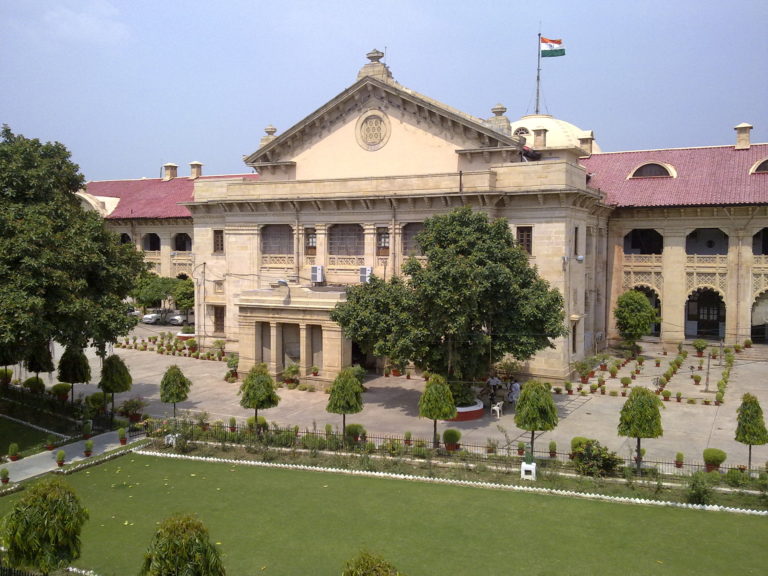Snubbing the evil of unwarranted arrests by police, the Allahabad High Court has said, “Arrests should be the last option for the police, and it should be restricted to those exceptional cases where arresting of the accused is imperative or his custodial interrogation is required.”
Granting bail to a resident of Khurja, Justice Siddharth Verma said on January 6, “Irrational and indiscriminate arrests are a gross violation of human rights.” The Judge observed, “Personal liberty is a very precious fundamental right and it should be curtailed only when it becomes imperative. According to the peculiar facts and circumstances of the particular case, the arrest of an accused should be made.”
Quoting from a judgment of SC, the Judge noted, “The third report of the National Police Commission has mentioned that arrest by the police in India is one of the chief sources of corruption.”
“The report had suggested that, by and large, nearly 60 per cent of the arrests were either unnecessary or unjustified and that such unjustified police action accounted for 43.2 per cent of expenditure of the jails,” the order further stated.
ARRESTS IN UP
These observations of HC are important in the wake of police action, including arrests of many innocent persons and unnecessarily violating their personal liberty. Shockingly, a poor shoe vendor Nasir of Gulaothi in Bulandshahr district of Uttar Pradesh was booked on January 6, on the complaint of a Bajrang Dal activist for selling shoes with ‘Thakur’ trademark embossed on the sole. The road-side vendor was promptly booked under Sections 153A, 323, and 504 of the IPC (promoting enmity and voluntarily causing hurt and intentional insult to provoke breach of peace). Thakur Shoe Company of Agra was also named.
Unmindful of SC’s worry on the protection of ‘personal liberty’ (in Arnab Goswami Case – 11 Nov 2020), several young couples and their relatives have been jailed on the unfounded complaints from some right-wing activists under controversial ‘Conversion of Religion Ordinance 2020.’ In the wake of protests against CAA, many were harmed physically and jailed irrationally.
There is a long list of people made accused in terror cases all over the country who were later acquitted by courts as innocent after languishing in jails for decades. The irrational streak of arrests causes a rush of under-trials in jails. Statistics of 2017 reveals that only 30.9 per cent prisoners in jails were those who had been convicted. While more than double, 68.5 per cent were under-trials. Many of them have to wait for years before the trial courts begin hearing. Sometimes for periods longer than jail term for which they would have to serve if convicted.
POOR SUFFER MORE
Reports of the National Crime Records Bureau (NCRB) reveal that most of the prisoners belong to illiterate (30.9%) / semi-literate (70.2% below C. 10), poor and socially unprivileged sections of the society. Most of them are too poor to afford even the bail fee and have to languish in jails even after completion of jail term. Analysts are of the view that caste and community prejudices are the main factors behind the high proportionate presence of socially and economically deprived sections of society in jails. In all, two-third of prisoners are Dalits, tribals and OBCs. The findings look good as more than one-fifth (over 20.9%) of jail inmates belong to the Muslim Minority. And now they are being made the victim of ‘revenge’ mindset.
EXPENSIVE SYSTEM
It is felt that the Indian Criminal Law, a legacy of the colonial times, is unjust for a sovereign democratic constitutional republic that proudly guarantees civil and human rights. Evidently, the prevailing practices do not confer the most precious constitutional guarantees. The system has become very expensive also for the weaker sections and so they have to suffer unbearably.
Arbitrary arrests and delayed court proceedings are two main reasons for overcrowding and poor conditions in most jails. In a landmark judgment (Shri Rama Murthy v. the State of Karnataka- 23/12/1996) the Supreme Court had marked “nine major problems which afflict the system and need immediate attention. These are: (1) overcrowding; (2) delay in trial; (3) torture and ill-treatment; (4) neglect of health and hygiene; (5) insubstantial food and inadequate clothing; (6) prison vices; (7) deficiency in communication; (8) streamlining of jail visits; and (9) management of open-air prisons.” In a detailed judgment, the SC had suggested remedies for each but the situation is the same even after 24 years.
IMPLEMENT SC SUGGESTION
The government data of 2010 shows that between 2001 and 2019 the number of under-trials has increased at a rate faster than that of the convicted. At the end of 2019, 3.28 lakh prison inmates were undergoing trial, while 1.42 lakh were convicted. Many accused languish in the jails even without being produced before the magistrate once. The SC, in the aforementioned judgment, suggested: “Overcrowding may also be taken care of by taking recourse to alternatives to incarceration. These being: (1) fine; (2) civil commitment; and (3) probation.” Liberalise bail conditions and release on conditional parole must be given thought.
The long periods of forced imprisonment not only violate the fundamental rights of the citizen but also ruin his life and family, financially and emotionally; destroy his chances of respectable employment and societal reintegration. They become permanent suspect and subsequently get charged with crimes repeatedly.
[The writer is Chairman, Forum for Civil Rights]


